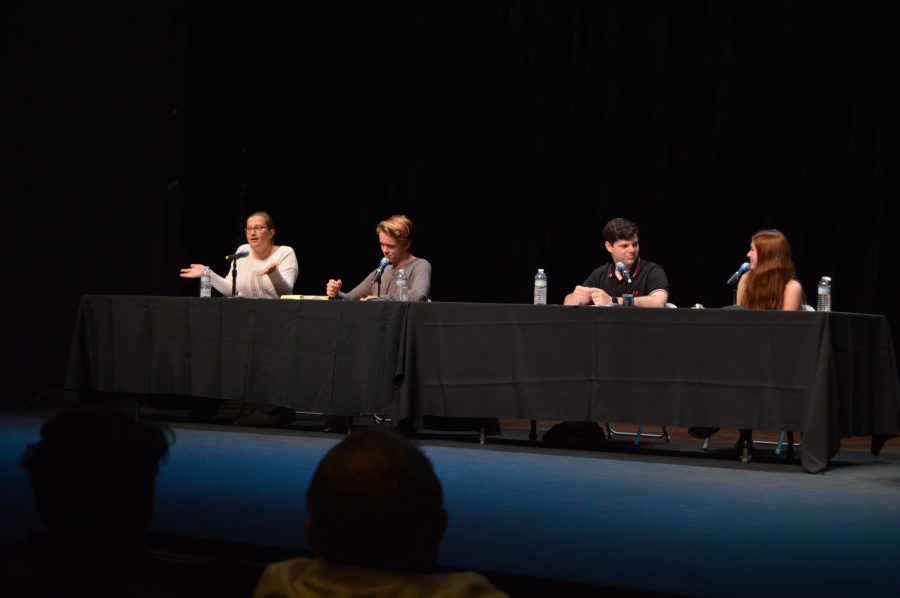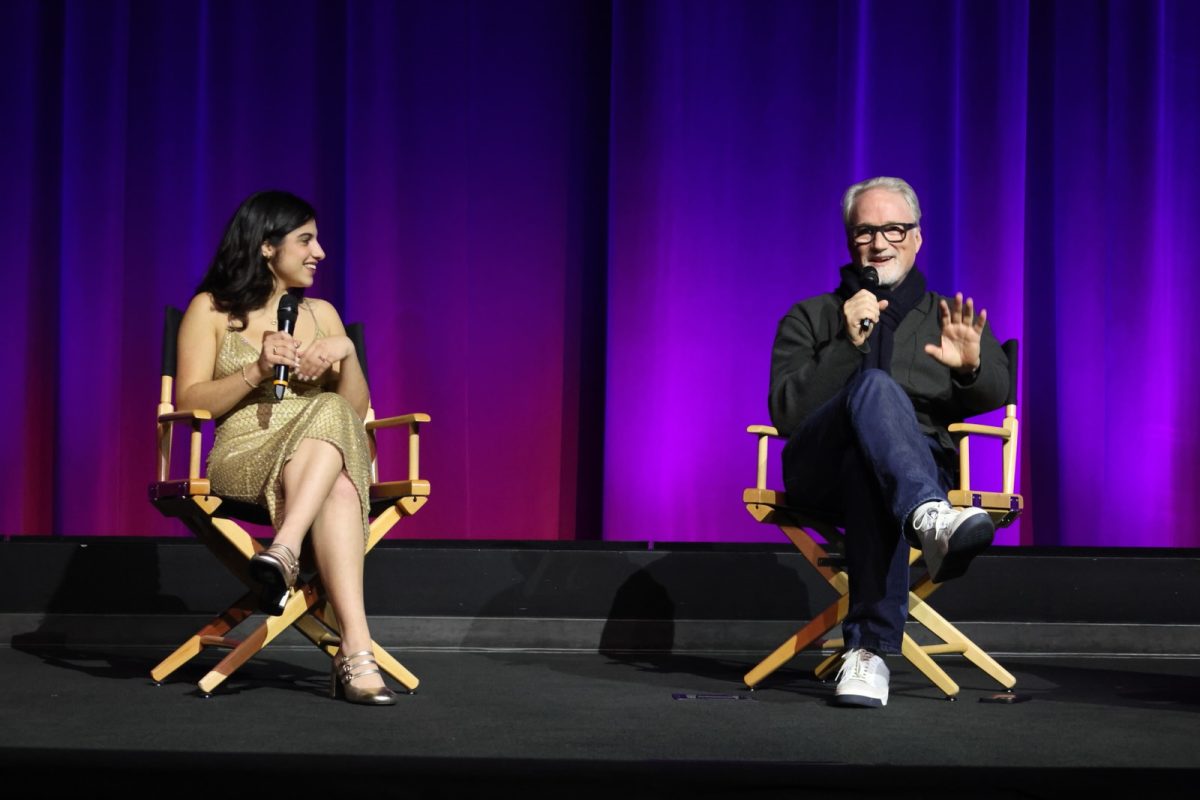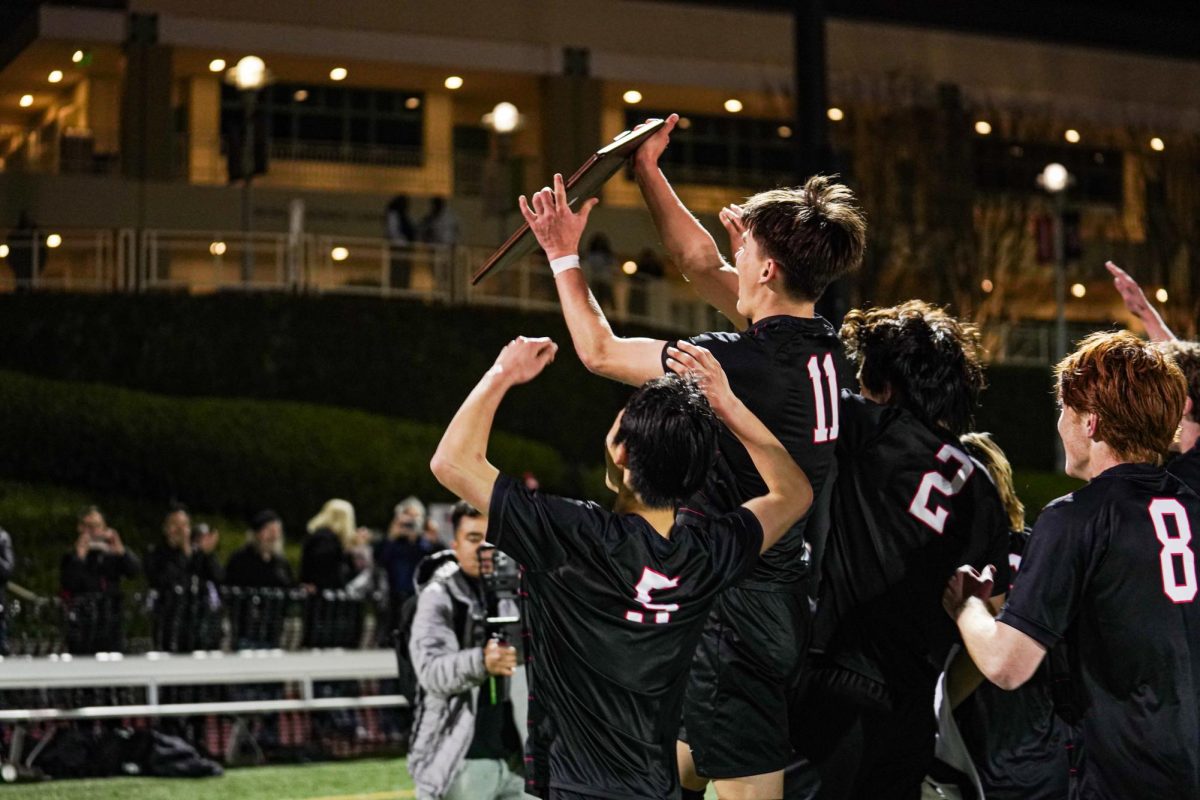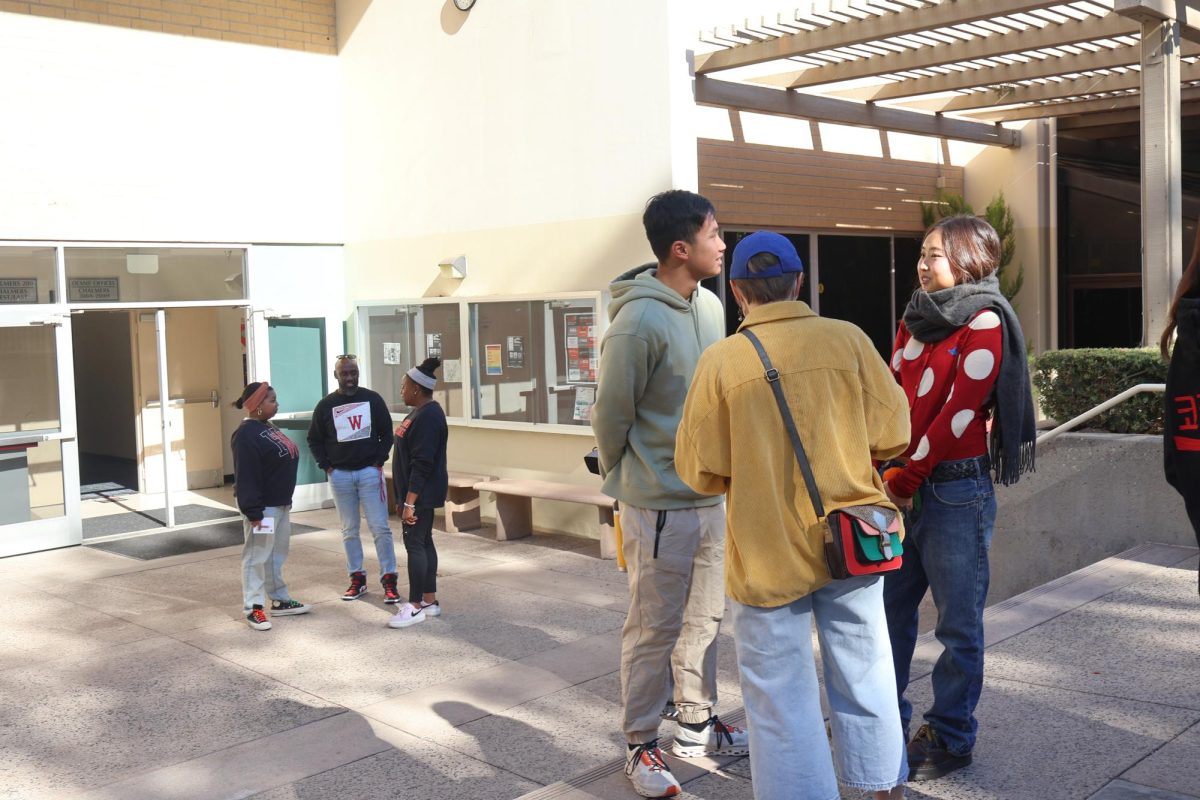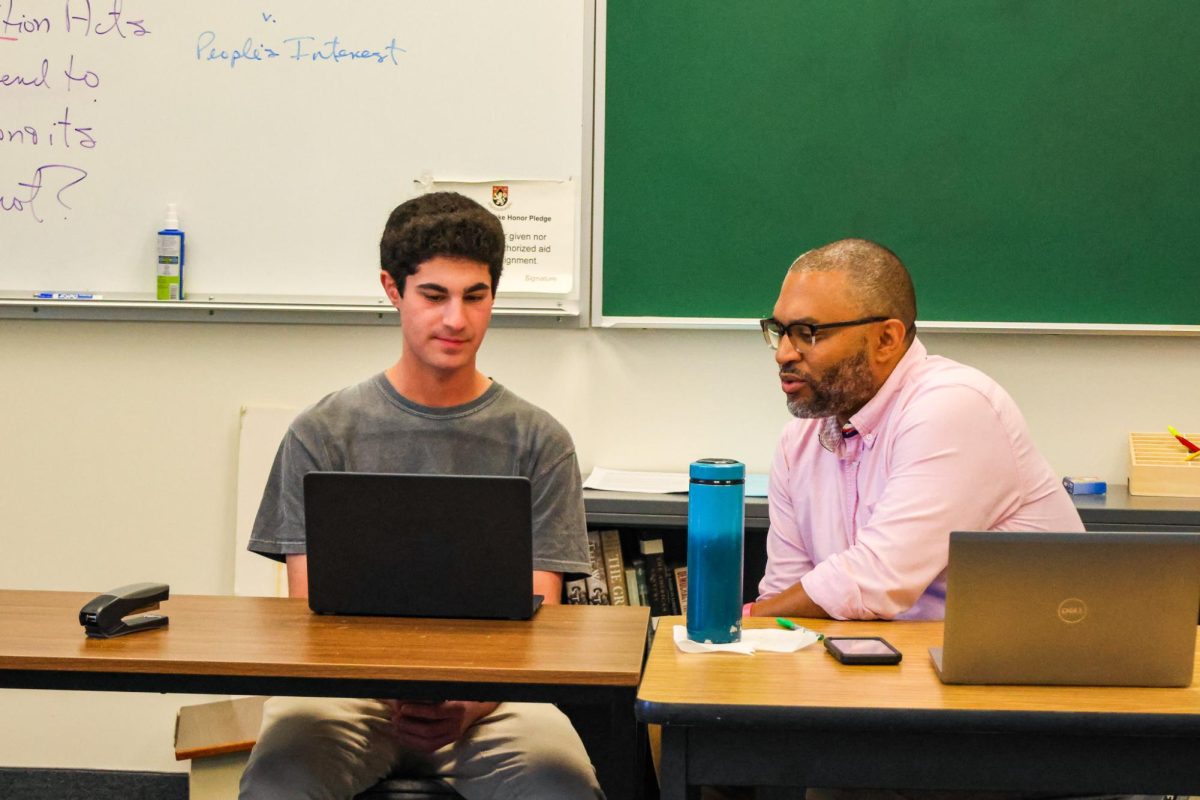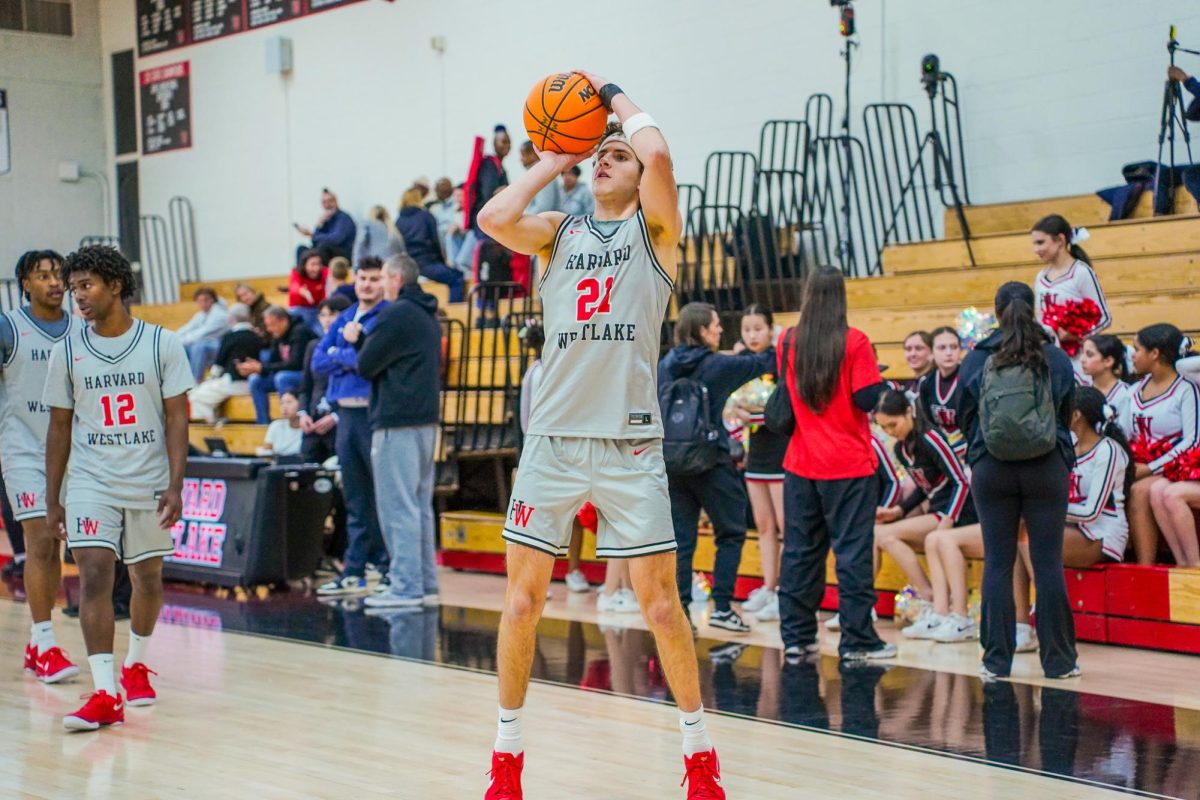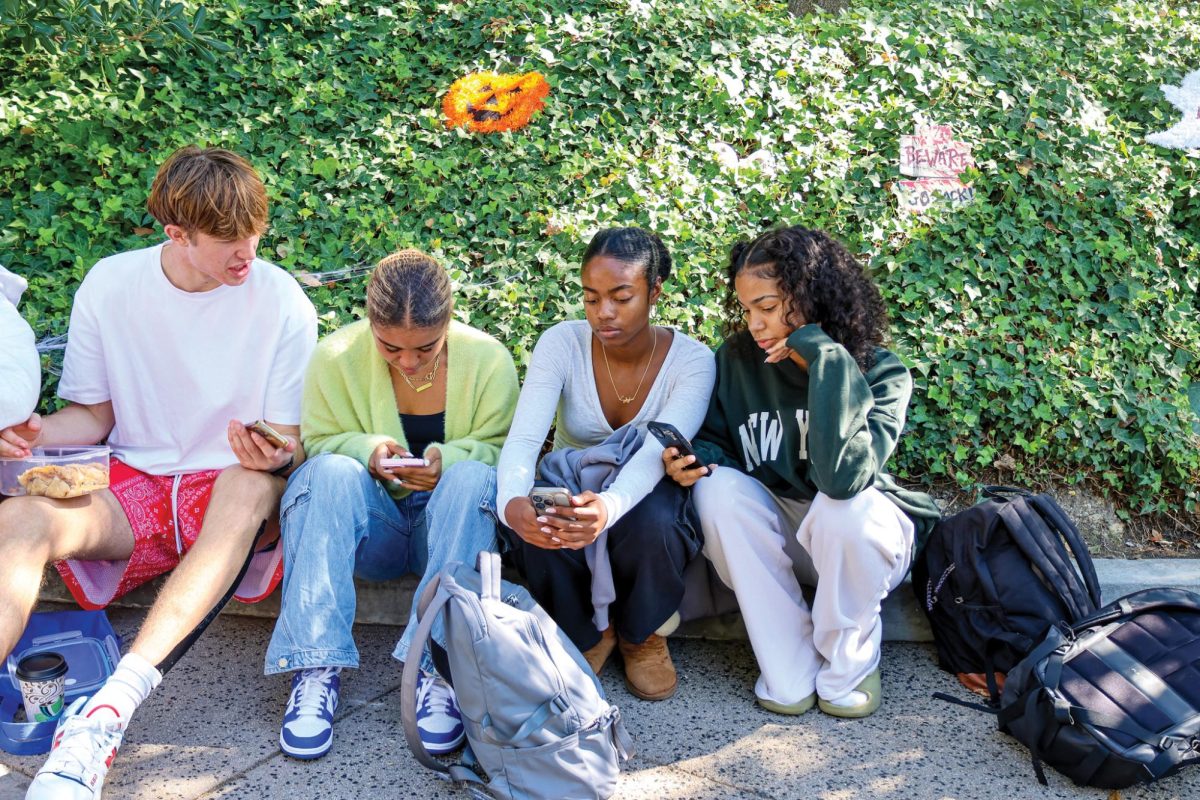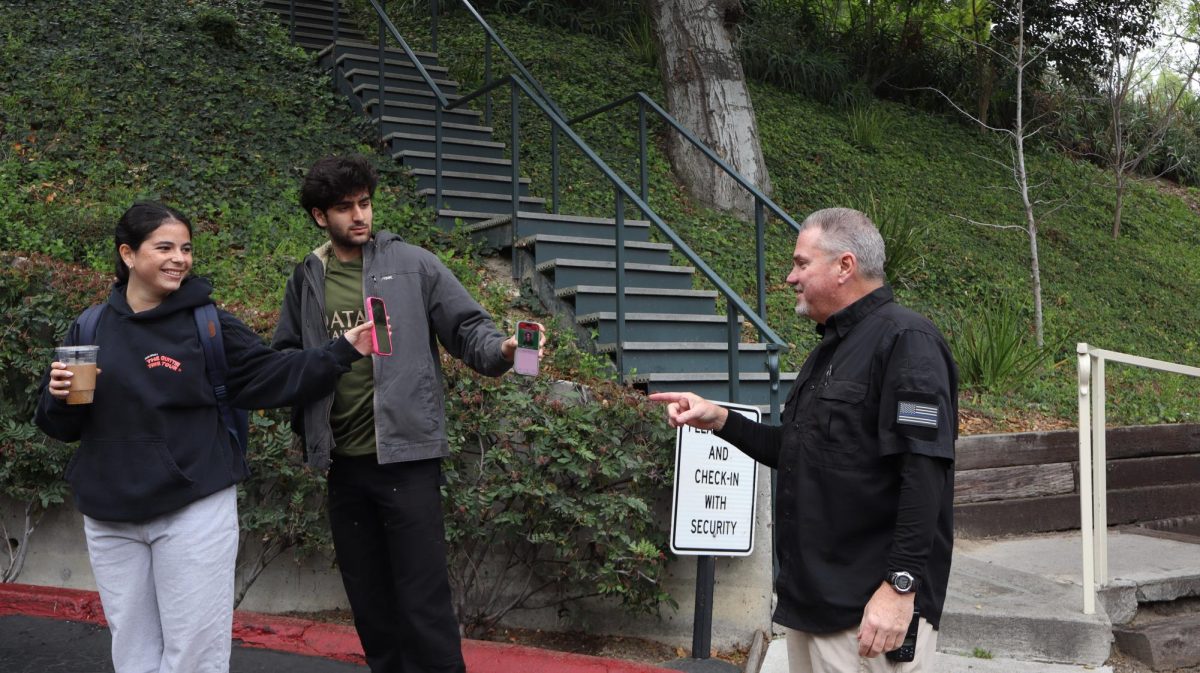Conservative and liberal students discussed feminism and the culture of political correctness at the first Political Discourse Society debate as observers lined the aisles of Rugby Auditorium and an overflow crowd watched from monitors in the hallway Monday.
Intentionally seated in line from most left-wing to most right-wing, Eleanor Halloran ’18, Will Cook-Healy ’19, Will Berlin ’19 and Natalie Winters ’19 answered questions aimed to spark political dialogue within the student body.
Winters said the future of feminism should be focused on the plight of women in the Islamic world, rather than issues in the U.S.
In rebuttal, Cook-Healy said that while there are issues overseas regarding women’s rights that need to be addressed, they cannot be used as an excuse to ignore domestic issues.
Halloran added to his point by saying that the status of women’s rights is not equally dismal across the Islamic world, explaining that several Muslim countries have had female heads of state.
“It’s a generalization to assume that the Islamic world is necessarily worse off than ours in terms of female issues,” Halloran said, which audience members said shocked them.
Winters also said that the survey, which yielded the commonly referred to statistic that says 1 in 5 women on college campuses are raped, is flawed. She then cited a study conducted under the Obama administration’s Department of Justice in which 6.1 students in every 1000 reported rape and sexual assault.
“I think we’re at the point at which the only way to necessitate your [feminist] movement is based on erroneous and fallacious statistics,” Winters said to the audible gasps of the crowd. “I think you know how nonessential your movement is, whether it be the gender pay gap or the campus rape culture myth.”
Cook-Healy responded to the question of what the future of feminism is by saying that he thinks it will continue to grow and gain strength in the US.
“If feminism is cancer isn’t the future of feminism to kill us all?” Cook-Healy said, referring to a comment that Winters made during the first Right on Point podcast.
Answering the question of whether politics should be discussed in a classroom setting, Berlin said that teachers should make an effort to present both sides of any issue, to allow students to make decisions regarding politics.
“A teacher who pushes their opinions too frequently and too prominently can create an unsafe environment where students are afraid to express themselves,” Berlin said.
Winters added that she feels teachers sometimes use their position to impose their viewpoints on their students.
In response, Cook-Healy and Halloran said they think teachers should be allowed to express their views freely and speak to their experiences, as they feel presenting a centrist viewpoint is presenting a political opinion in and of itself.
“I wouldn’t want a conservative teacher trying to say what they think my point of view is in the classroom,” Halloran said. “I would want to have a full discussion where maybe I disagree with the teacher, but the teacher is free to say what they think and so am I.”
Discussing the culture of political correctness on campus, Berlin said that while he recognizes that political correctness can be used to prevent the exclusion of people, he said that it can also perpetuate the exclusion of people with minority viewpoints. He cited incidents at UC Berkley, where the Antifa movement turned to violence in order to prevent conservative speakers from coming to campus.
Cook-Healy countered by saying that the culture of political correctness is not one of exclusion but of respect for everyone.
“I don’t think that political correctness is a free speech issue or people trying to stifle others,” Cook-Healy said. “It’s just us trying to make sure that we propagate a culture of respect.”
Winters said that people use political correctness to suppress the conservative views that she wants to express.
“I ask you, where’s the respect for conservative viewpoints?” Winters said.
Halloran said that she thinks some viewpoints should not be protected.
“When you make a space that is safe for all viewpoints, including viewpoints that are dangerous for underprivileged people, you make that space unsafe for underprivileged people,” Halloran said.
Halloran said she feels conservative students are a represented population at the school.
She said that since she thinks the school works to level the playing field between all groups, it takes the advantage away from any one particular group.
“When you’re used to privilege, equality feels like oppression,” Halloran said.
Winters responded by saying that Halloran cannot ignore the fact that there is a bias on campus against conservative viewpoints.
“When the podcast that I had came out, I got dirty looks from students, from teachers and deans,” Winters said. “Those are people who are employed by the school, who are teachers here, and they’re looking down on me. When you can create an environment where teachers feel empowered to act that way towards a student who expresses conservative viewpoints, I would say that you don’t create a space that’s a safe space for conservatives.”
The debate was originally scheduled to take place Oct. 9, but Political Discourse Society faculty advisor Francine Werner said she postponed it in order to ensure that debaters had more time to prepare. In the interim, students had a chance to listen to conservative speaker Hugh Hewitt so that the content of the debate would not be solely focused on comments made in the first Right on Point podcast.
The Political Discourse Society also added Cook-Healy and Berlin to the format as more moderate voices.
“I really thought all four people did a good job,” Werner said. “Whether people agree with them or not, I thought they all really thought things through.
Moderator JP Cherry ’18 said the next debate will likely focus on foreign policy issues.





























